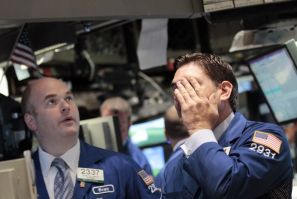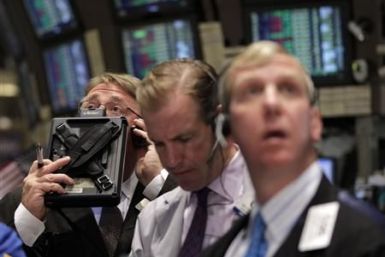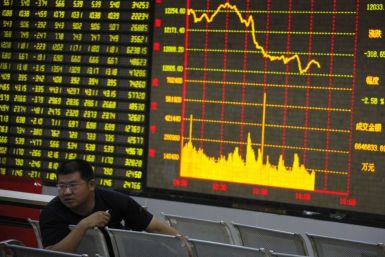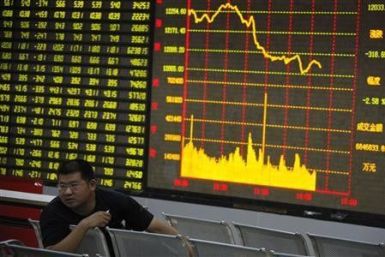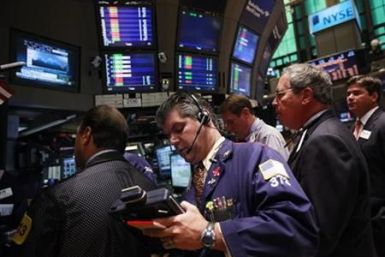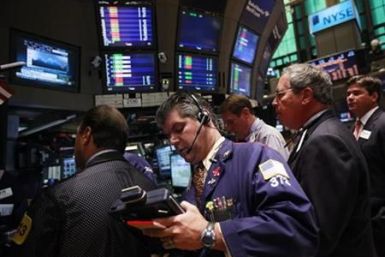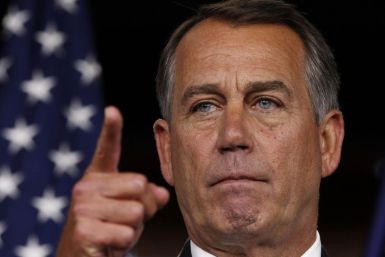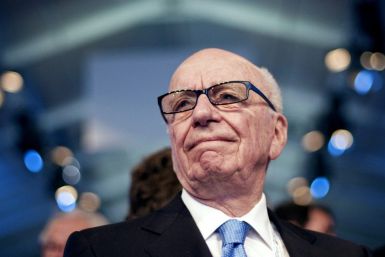Wall Street fell for a sixth day on Monday on renewed angst about Washington's ability to reach a deal on raising the U.S. debt ceiling and following disappointing news from the manufacturing sector.
Stocks fell a sixth day on Monday as weaker-than-expected U.S. manufacturing data and uncertainty over the debt deal in Washington kept the mood skittish on Wall Street.
Christine Lagarde, managing director of the International Monetary Fund, said the dollar may weaken if the U.S. Congress fails to raise the U.S. debt ceiling.
Wall Street skidded on Wednesday as troubling signs from U.S. corporations and falling demand for long-lasting manufactured goods discouraged investors already nervous about faltering debt talks in Washington.
Analysts expect Boeing Co (BA.N) to report a narrowed quarterly profit on Wednesday, but Wall Street will be looking for executive comments on its high-profile commercial airplane programs.
Gold prices rose to an all-time record in New York to touch $1623.70 as investors weighed in the possibility of a debt default in the U.S.
The dollar fell broadly on Tuesday as lawmakers remained deadlocked over raising the nation's debt ceiling to avoid a devastating default, while U.S. and European shares also declined.
The dollar fell on Tuesday as U.S. lawmakers remained deadlocked over raising the nation's debt ceiling to avoid a devastating default, while U.S. and European shares also declined.
Stocks pared losses on Tuesday as a better-than-expected reading on consumer confidence boosted investor optimism.
U.S. stock index futures fell sharply on Sunday as failure so far by the government to strike a deal on the debt ceiling made the prospect of default -- once considered an impossible outcome -- more likely.
Stocks tumbled on Monday as political brinkmanship in Washington over the debt ceiling sparked fears of a U.S. rating downgrade, sending world equities lower and pushing gold to a record high.
Stocks fell on Monday as continued political sparring in Washington over the debt ceiling heightened worries of a U.S. rating downgrade, sending world equities lower.
Is there a way to get a quick-read on the U.S. economy, for those who are time-pressed, and don't have time to review the latest economic reports from the U.S. Federal Reserve? Indeed there is: review the performance of diversified industrial giant General Electric (GE).
The earnings season is when a large number of publicly traded companies release their quarterly earnings reports. The earnings season is so far topping Street views at a pace above typical quarters.
Verizon didn't add as many iPhones as AT&T but did well financially in the second quarter regardless.
The company does better than expected and addresses the T-Mobile merger.
Futures on major U.S. indices point to a lower opening on Thursday ahead of key weekly jobless claims data and corporate earnings.
U.S. stocks were flat Wednesday as investors obsessed over the debt ceiling. The Dow Jones industrial average fell 16 points, or 0.1%.
Despite no evidence that a debt deal was imminent, House Speaker John Boehner, R-Ohio, reiterated that he would not allow a default by the U.S. Government on his watch.
Even though he was the main force behind the company's rise to power, Rupert Murdoch leaving News Corp. would actually benefit the company's stock price.
Labour Party leader Ed Miliband has also called for a comprehensive change in media ownership laws in order to prevent the kind of power and influence Murdoch has had on UK politics.
Not long after Rebekah Brooks resigned as CEO of News International, the British newspaper arm of News Corp., Dow Jones & Co. CEO Les Hinton offered his resignation to Rupert Murdoch on Friday.




